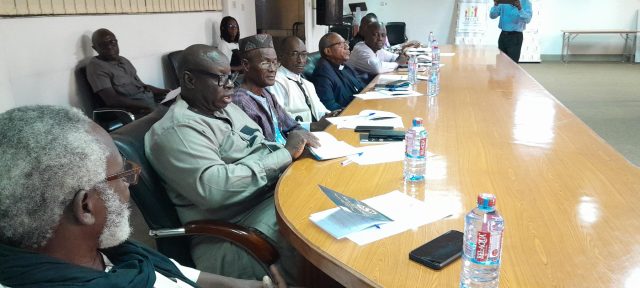Ms Kathleen Addy, the Chairperson, National Commission for Civic Education (NCCE), has called on the public to reject and punish politicians who spread religious hatred and intolerance to gain votes in the 2024 elections.
She described it as particularly offensive when politicians made atrocious utterances in the name of gaining votes.
“This toxic identity politics which has sent other nations into chaos is not something Ghana should entertain. We must not sacrifice our peace just because someone wants to attain political power,” she said.
Ms Addy made the call when she met a delegation from the Parliamentary Caucus on Freedom of Religion and Faith Leaders from The Gambia, Sierra Leone, and Malawi.
The purpose of the gathering was for Members of Parliament and Faith Based Leaders from the three nations to learn about the NCCE’s operations and successes, particularly in encouraging peaceful coexistence regarding religion and power attainment, and to share their own with the Commission.
Ms Addy made the statement in response to reports of religious-based comments by some politicians with the aim to get votes in Ghana’s 2024 General Elections.
“We are a country of many problems, and we do not have to let religion become another issue. We need to fight it to maintain the peace we enjoy,” she said.
The NCCE Chairperson noted that Christians and Muslims in Ghana had built solid relations and achieved more together, such as inter-marriage and celebrating each other’s festive seasons.
It was therefore unsettling for politicians to make pronouncements that would threaten the nation’s cohesion and peace.
“We need to make politicians know that this will not be accepted, tolerated and we also need to let the citizens know the importance of not entertaining such comments. We need to gear up and make it unattractive for the politician to want to win vote based on religion.
“I always tell Parliamentarians, if they do something to jeopardise democracy and peace, they should bear in mind they will first lose their positions as Members of Parliament,” she added.
Ms Addy suggested that documentation be created on how religious issues emerged and were addressed in other countries so that other nations could learn from it and the Commission could use it to educate the public and influencers on its consequences.
Reverend Dr Usman Jesse Fornah, General Secretary of the Inter-Religious Council of Sierra Leone, said a similar comment made by a politician in Freetown sparked a backlash, which that forced the politician to recant and apologise in public, including the media.
He stated that the subject of religious intolerance may be made unappealing if the public and powerful institutions stood firmly in their refusal to allow such comments.
He suggested that Ghana create a formidable inter-religious Committee to assist the NCCE in its religious tolerance mission.
Reverend Dr James S. Cole of the Gambia Christian Council, said although the Gambia had 70 per cent Muslims and the rest were Christians, the Faith Leaders worked together to ensure that divisions were not entertained based on desire for political power.
“The work religious leaders must do cannot be overemphasised. We need to do more and sensitise one another to ensure that issues of intolerance will not take us by surprise,”
Dr. Ephraim Abel Kayembe, Malawi Legislator for Dowa West Constituency, stated that in 1994, citizens were interrogated regarding their preference for a Muslim or Christian president; however, all groups of people, including Rastafarians, stood up against it and demanded clean politics and elections, which helped.
He was pleased with the formation of the Ghana Parliamentary Caucus on Freedom of Religion or Belief, stating it would encourage religious tolerance.

















